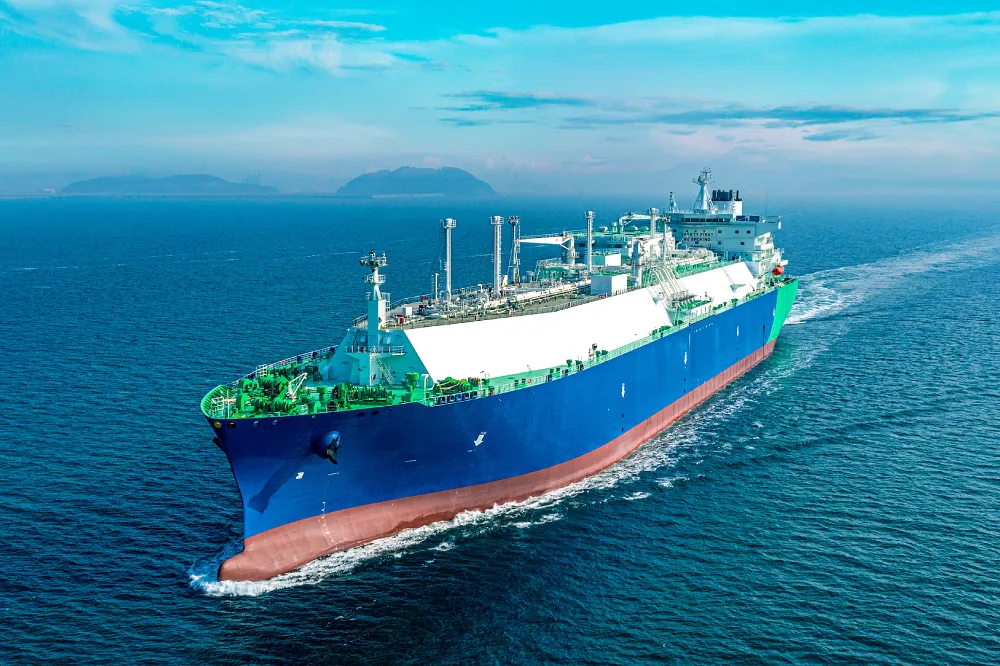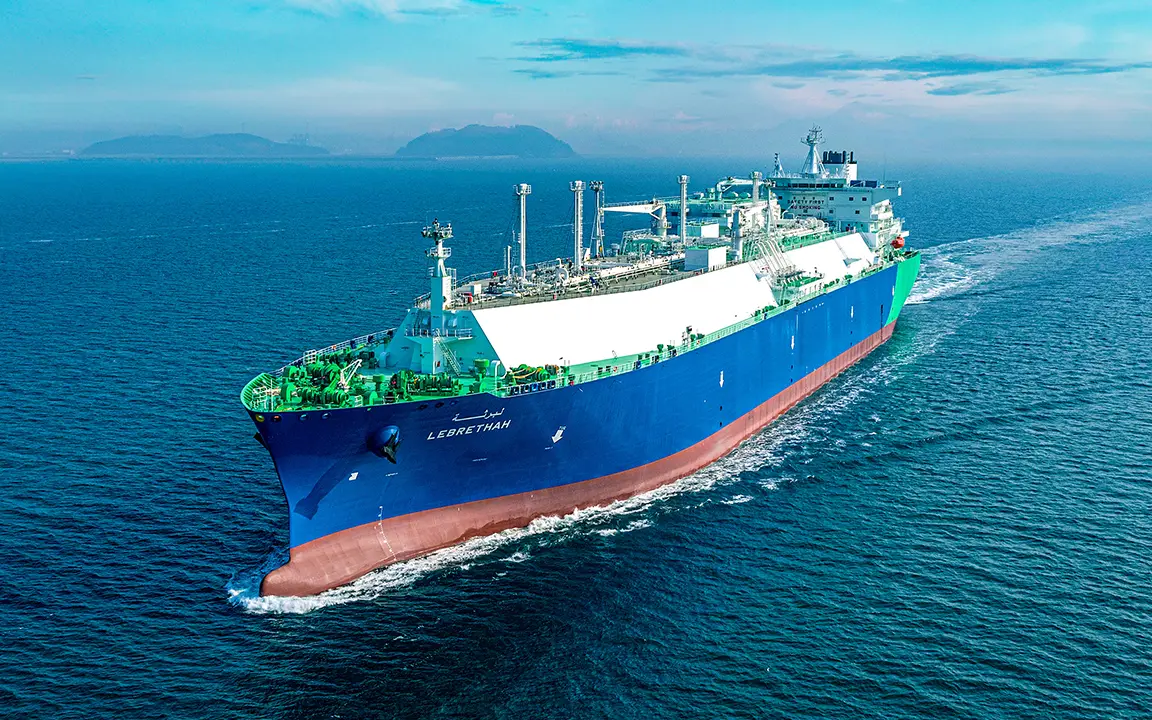How Hanwha Philly Shipyard is supporting America’s maritime resurgence

This content was produced in partnership with Forbes BrandVoice.
The United States is intensifying efforts to reinvigorate its domestic manufacturing base, with shipbuilding — critical to both economic strength and national security — a key focus. Despite being the world’s leading LNG exporter, the U.S. still relies heavily on vessels built overseas to transport its energy supplies abroad. This has pushed shipbuilding higher on the public policy agenda, with bipartisan initiatives like the SHIPS Act and the Maritime Dominance Executive Order taking shape. Recent U.S. Trade Representative (USTR) proposals, particularly around LNG carriers, further underscore the urgency of bolstering U.S. shipbuilding capabilities.
Underpinning this momentum, Hanwha Group announced a $5 billion infrastructure plan to upgrade Hanwha Philly Shipyard to a next-generation shipbuilding hub. Part of a wider $150 billion investment fund created by the South Korean government to support U.S. shipbuilding, Philly Shipyard’s transformation aims to usher in a new chapter for American shipbuilding. Hanwha plans to use Philly Shipyard as a base to lead the construction of new shipyards in the U.S., train skilled shipbuilding personnel, rebuild shipbuilding supply chains and oversee ship construction and maintenance, repair and overhaul (MRO) operations.
As the U.S. seeks to expand its maritime and industrial manufacturing leadership globally, reestablishing industrial capacity at home has become a top policy priority—one that will depend on continued investment, technological collaboration and aligned industrial partnerships. Hanwha Philly Shipyard offers an example of how these priorities are being translated into action.
Turning a legacy yard into a model for the future
Hanwha finalized its acquisition of Philly Shipyard in late 2024, identifying not only a commercial opportunity, but also a chance to support U.S. shipbuilding capacity. Since 2000, the historic yard has delivered more than half of the nation’s large commercial vessels built under the Jones Act — a record that underscores its strategic importance to domestic maritime trade.
“Philly Shipyard is a proven asset in the U.S. maritime industry, and our goal is to combine that strong foundation with world-class processes and technology to create the most advanced shipyard in the world,” said Dong Kwan Kim, Vice Chairman of Hanwha Group. “Hanwha is committed to being a partner in building the next chapter of American shipbuilding.”
Hanwha’s $5 billion infrastructure investment will transform Philly Shipyard into a landmark, high-efficiency shipyard. With plans to significantly scale production from roughly one vessel per year up to an unprecedented 20 per year within the next decade, Hanwha is expanding all three core phases of shipbuilding: assembly areas where ship blocks are built, docks where hulls are constructed and outfitting berths where final systems are installed. The investment takes a comprehensive approach — upgrading the entire production flow to ensure each stage of the shipbuilding process can scale in parallel.
It will also introduce smart yard innovations — including robotic welding, automated inspection, modular construction and digital twin modeling — adapted from Hanwha Ocean’s proven shipbuilding model in Korea. These upgrades will enable the shipyard to integrate operations more seamlessly, optimize workflows and meet rising demand. In the long term, Hanwha sees Philly Shipyard playing a pivotal role in supporting U.S. naval defense needs.
“Hanwha’s commitment to Philly Shipyard demonstrates our belief in the importance of laying a strong foundation. We’re here to enhance sovereign capacity and deliver advanced technology that will support the needs of the U.S. commercial and defense sectors,” said Hanwha Global Defense CEO Michael Coulter.
Building and sustaining U.S. shipbuilding capacity
In July 2025, Hanwha Philly Shipyard received an order from Hanwha Shipping for a new LNG carrier —the first U.S.-ordered, export-market–viable LNG carrier in nearly 50 years. As part of Hanwha’s broader model of full technology transfer, the project will be delivered through close collaboration between Hanwha Ocean — the world’s top holder of LNG vessel orders, per Clarksons Research as of July 2025 — and Philly Shipyard.
Building on that milestone, Hanwha Shipping recently announced it has exercised its option to order a second LNG carrier from Hanwha Philly Shipyard — Hanwha plans to secure two U.S.-flagged vessels compliant with USTR regulations. It also plans to advance activities to transfer LNG carrier construction technology from Korea to the U.S. through the cooperation between Hanwha Ocean and Hanwha Philly Shipyard. While LNG carriers are capital-intensive and highly specialized, scaling production in this way is expected to reduce costs over time. For a nation that exports vast volumes of energy, developing the ability to build and deploy LNG carriers domestically supports both economic security and defense readiness.
Outside of LNG, Hanwha Shipping also placed an order for 10 medium-range (MR) oil and chemical tankers with Hanwha Philly Shipyard, with the first expected to be delivered by early 2029. Not only does this mark the largest U.S. commercial vessel order in more than two decades, but it is also the highest-value commercial order recorded at a U.S. shipyard, reinforcing the yard’s role as a cornerstone of American maritime growth.

The 200th LNG carrier built by Hanwha Ocean
Broadening capabilities to meet evolving U.S. maritime needs
While Philly Shipyard has historically been associated with Jones Act container ships and the National Security Multi-Mission Vessel (NSMV) program run by the U.S. Maritime Administration (MARAD), it is now poised to address a wider array of priorities. As naval shipyards face increasing demands and stringent production timelines, modern commercial yards like Hanwha Philly Shipyard can provide the necessary space, workforce and infrastructure to accommodate auxiliary shipbuilding, repair backlogs and component production for larger shipbuilding programs.
Through ongoing investments in infrastructure, technology and training, Hanwha is working to expand Philly Shipyard’s capabilities and long-term competitiveness. In doing so, it is set to play a key role in supporting a future where the U.S. maritime industrial base is positioned to thrive in a modern, fast-evolving maritime sector.

Timelapse of Philly Shipyard rebranding
Get the latest news about Hanwha, right in your inbox.
Fields marked with * are mandatory.
- Non-employee
- Employee





